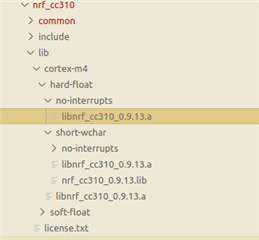Hello !
If I understand right and nrf_crypto is the main Crypto API in nRF SDK. They can be mapped to cc310 or to mbedtls sw routines.
Does exists nrf_crypto asynchronous APIs ? At list for some algos. When I can schedule AES CCM/CTR ( for example ) and get callback when operation is completed.
I can see cc310 supports interrupt driven operation. But it is not so clear what kind of APIs can be used for async operations.
What can be start point if I need to implement AES 128 bit CCM/CTR for cc310 in async way ?
Please suggest shortest way.
Regards,
Eugene



